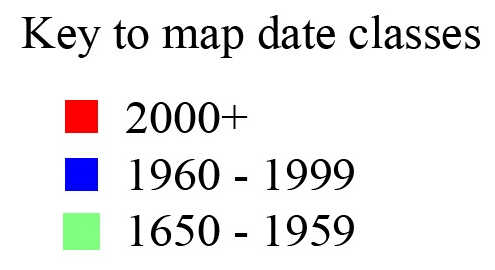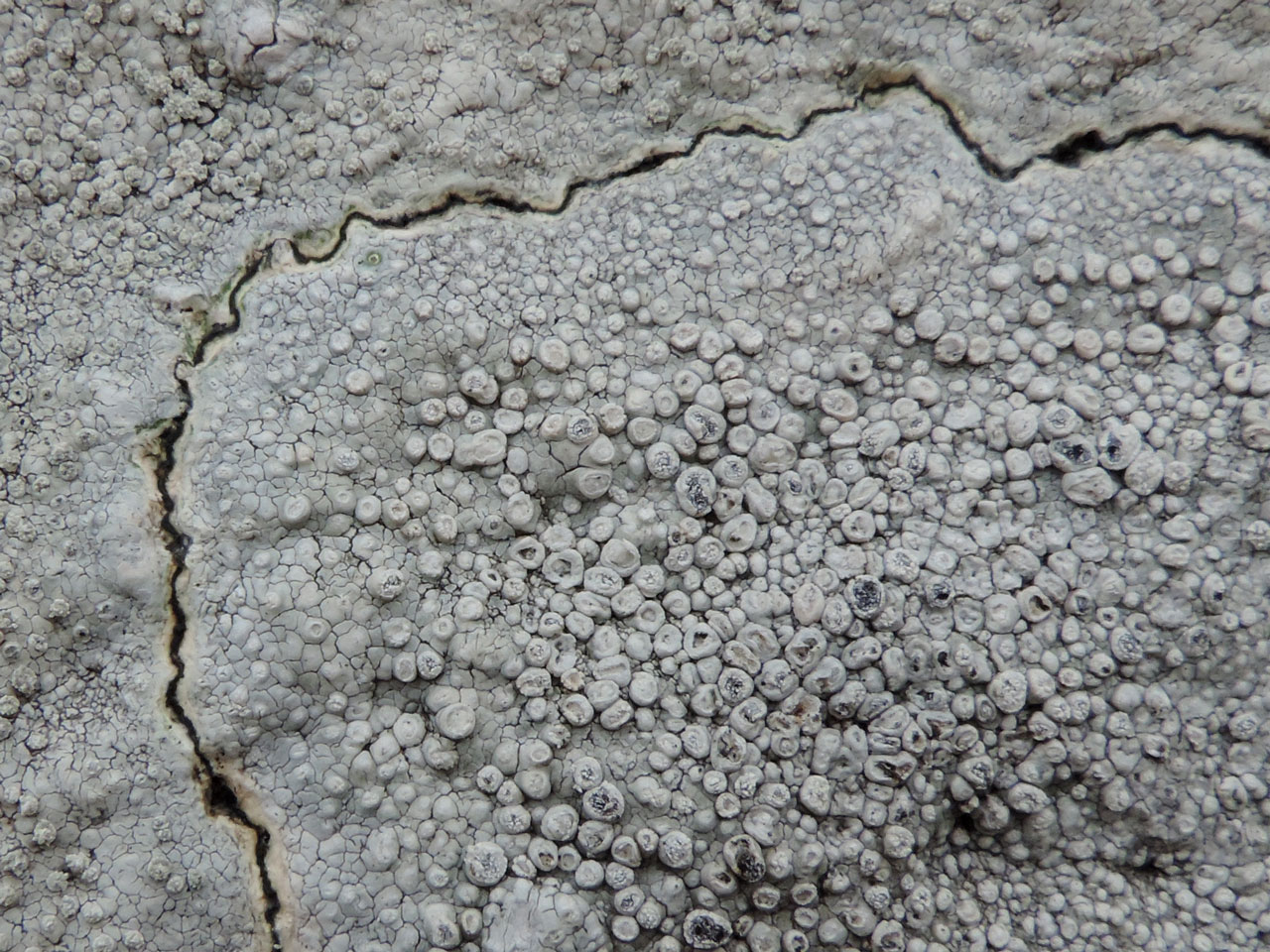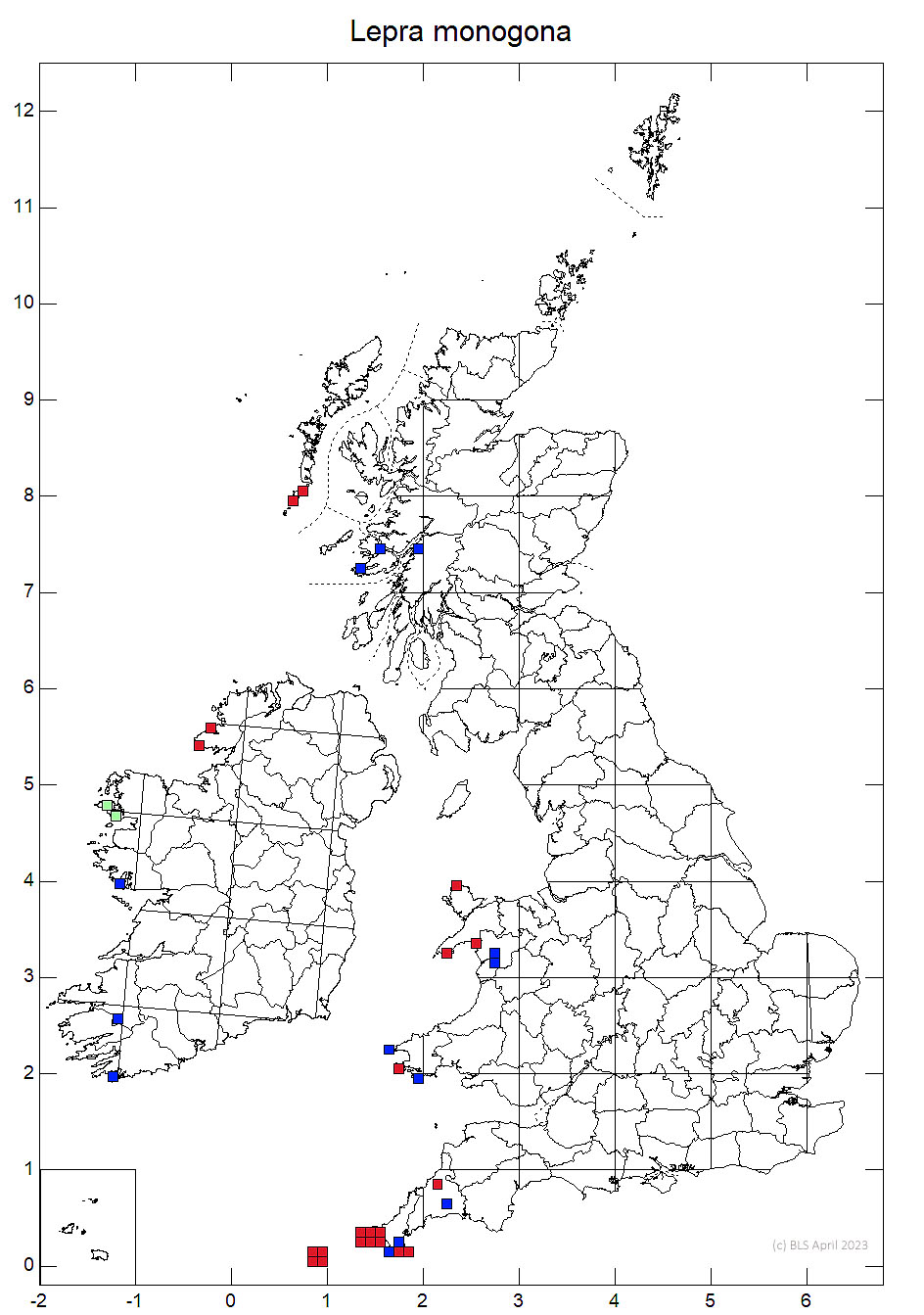Description from Cannon et al (2021) below.
Like Lepra excludens, but soralia and isidia absent and fertile. Fertile warts numerous, arising from low tubercles, ± elevated, becoming 1.5–2.5 mm diam. Apothecia 1-4 (- 6) per wart, deeply immersed; disc flat, ± veiled, ± black, coarsely white-pruinose, surrounded by an irregular, often smooth and raised thalline exciple, the inner edge somewhat torn; epihymenium with numerous crystals, K–. Asci 1-spored, often aborting. Ascospores 100–300 × 50–100 μm, wall relatively thin (4–5 μm), not striate or zoned. Thallus reactions and chemistry as in P. excludens: medual C–, K+ yellow→blood-red, KC+ yellow-red, Pd+ yellow-orange, UV± pale grey or grey- yellow, (norstictic, ± salazinic, ± unknown fatty acids, ± UV+ yellow xanthone).
Characterised by the fertile warts in which apothecia are immersed with white pruinose discs and by the K+ red thallus. The broad thick-margined rounded apothecia with an irregular ± pruinose opening and veiled disc are also diagnostic; they are usually paler than the thallus. Lepra monogona is possibly the fertile counterpart of L. excludens, but the former taxon has not been sequenced.
On sunny siliceous coastal rocks.

S.W. England, Isles of Scilly, Channel Islands, Wales (Pembrokeshire, Merionethshire), W. Scotland, W. Ireland; rare.
Britain: Notable
Cannon, P., Kukwa, M., Coppins, B., Fletcher, A., Sanderson, N. & Simkin, J. (2021). Pertusariales: Ochrolechiaceae, including the genera Lepra, Ochrolechia and Varicellaria. Revisions of British and Irish Lichens 5: 1-17. Link

